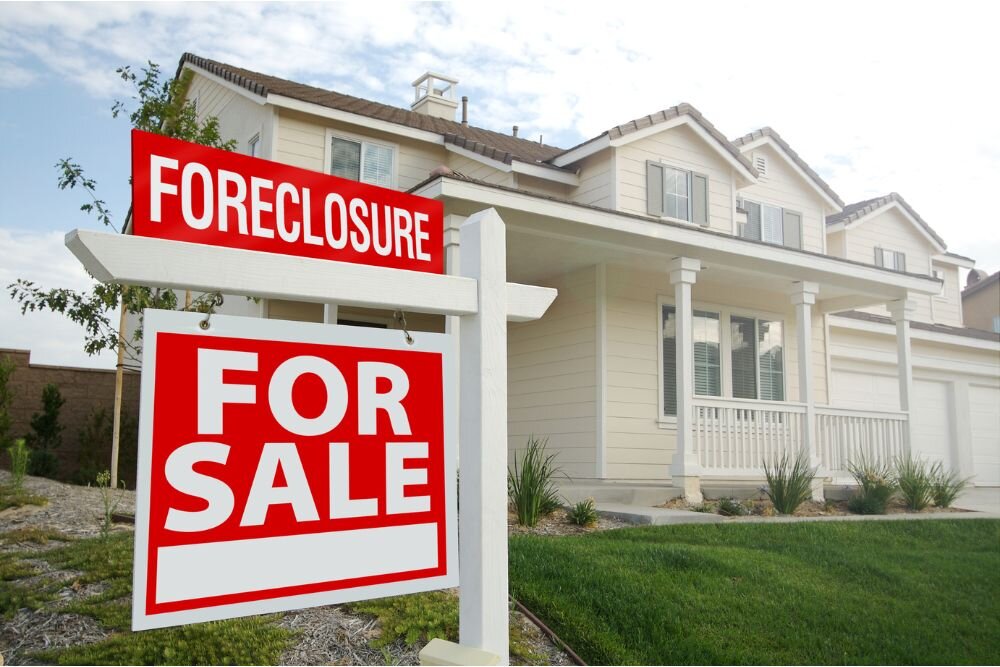California’s real estate and homeowners association (HOA) rules are very complicated. You need to know much about state laws to deal with possible foreclosures in Los Angeles. Homeowners in California should know that HOAs can put liens on properties for unpaid dues. If the matter isn’t taken care of quickly, the property could be foreclosed upon.
The Davis-Stirling Common Interest Development Act sets rules for HOAs and tells them exactly what they need to do before they can start the eviction process. Residents of California need to know this act and other important California Civil Codes to effectively protect their property rights.
Additionally, homeowners can negotiate payment plans or settlements with their HOA and reduce risks by understanding the differences between judicial and nonjudicial foreclosures within the state’s legal framework.
Proactive communication with HOA boards and seeking legal advice from professionals specializing in California real estate law can significantly aid homeowners in maintaining ownership of their homes while complying with all necessary regulations.
Understanding Hoa Foreclosure Laws in California
To understand how California’s HOA foreclosure rules work, you need to know a lot about how homeowners associations work in the state. In California, if a homeowner falls behind on their association dues, the HOA can put a lien on the property. This can start the eviction process.
The law mandates that an HOA must provide proper notice to the homeowner and follow specific legal procedures before foreclosing on a home. This process includes sending a pre-lien letter at least 30 days before recording a lien, which outlines the amount owed and options for dispute resolution.
Furthermore, the California Civil Code says that any debt related to assessments must be more than $1,800 or have been unpaid for more than 12 months before an HOA can start non-judicial foreclosure procedures. Los Angeles homeowners should know that they can lose their home if they don’t pay their HOA fees, even if their mortgage is paid.
Homeowners need to know these rules in order to protect their property rights and get legal help if they need to in order to handle any disagreements with their association in a good way. If you’re unsure where to start, Blue Wave Investments can help guide you through the process and connect you with resources to resolve HOA-related issues efficiently.
Legal Grounds for Hoa Foreclosure Actions in Los Angeles
Homeowners associations (HOAs) in Los Angeles have particular legal grounds to start foreclosure proceedings against property owners that neglect their financial responsibilities. Under California law, an HOA can pursue foreclosure should a homeowner neglect special assessments, monthly dues, or other expenses due to the association.
These delinquent payments must exceed $1,800 or remain unpaid for more than 12 months before the HOA can proceed with a foreclosure. The HOA is required to follow strict procedural guidelines, including offering the homeowner options for payment plans and providing formal notices of default.
The board must also decide to support any foreclosure action at a meeting that follows both state law and the rules of the organization. Los Angeles homeowners should know that HOAs have a lot of power under state law to enforce these financial responsibilities through foreclosure. However, they are also required to follow rules that protect property owners from unjust or arbitrary actions.
Understanding these legal grounds is crucial for homeowners seeking to navigate potential foreclosure proceedings initiated by their HOA.
Rights and Responsibilities of Homeowners in an Hoa Community

To properly handle any foreclosure issues, Los Angeles homeowners who belong to a Homeowners Association (HOA) neighborhood need to be aware of their rights and obligations. Members of a homeowners association must abide by certain guidelines set forth in the governing papers, such as the Covenants, Conditions, and Restrictions (CC&Rs).
These documents detail the obligations homeowners have toward maintaining their properties and paying dues or assessments that fund communal services and amenities. Failure to meet these financial obligations can lead to serious consequences, including fines or even foreclosure proceedings initiated by the HOA.
However, homeowners also possess certain rights that protect them from arbitrary actions by the HOA. They are entitled to a transparent explanation of any fees charged and should receive timely notices regarding any delinquent payments.
Additionally, homeowners have the right to contest charges they deem incorrect and receive due process prior to the pursuit of drastic measures like foreclosure. Understanding both sides—what is expected of them financially and legally, as well as how they can protect their property rights—empowers homeowners in an HOA community to better manage their relationships with the association and safeguard against losing their home through foreclosure.
The Impact of Unpaid Dues on Homeownership Rights
Unpaid homeowners association (HOA) dues can significantly impact homeownership rights in Los Angeles, potentially leading to serious legal and financial consequences. When homeowners fail to pay their HOA fees, they risk incurring late penalties, interest charges, and collection costs that can quickly accumulate.
HOAs often have the authority to place a lien on the property for unpaid assessments, which can complicate the homeowner’s ability to sell or refinance their home. In some cases, if the debt remains unresolved, the HOA may initiate foreclosure proceedings.
This method lets the association get back unpaid dues by selling the property at auction, even if the debt is current. Los Angeles homeowners need to be very aware of what they need to do to pay their HOA fees so they don’t lose their homes to foreclosure.
Understanding how unpaid dues affect ownership rights is important for maintaining stability and protecting one’s investment in areas governed by strict HOA regulations.
Key Differences Between Mortgage and Hoa Foreclosures
When navigating the confusing landscape of homeownership in Los Angeles, it’s crucial to understand the key differences between mortgage foreclosures and HOA foreclosures. Mortgage foreclosures occur when a homeowner fails to make payments on their home loan, leading the lender to initiate proceedings to seize and sell the property.
If a homeowner falls behind on HOA fees or assessments, on the other hand, the association can foreclose on their house. Both types of foreclosure can cause you to lose your home, but they are very different in how they work and what the legal consequences are.
Most of the time, mortgage lenders get paid before other creditors because they get first pick of any money from a foreclosure sale. But if you don’t pay your HOA dues, they can put a lien on your property. If you don’t fix the problem, the lien could lead to sale.
Different laws in California mean that the time it takes to foreclose on a HOA may be faster than the time it takes to foreclose on a mortgage. Los Angeles homeowners who want to keep their homes from being taken through either type of foreclosure process need to know these differences.
Financial Consequences of Ignoring Hoa Fees

Ignoring HOA fees in Los Angeles can lead to severe financial consequences, jeopardizing your home ownership. Homeowners associations (HOAs) have the authority to impose fines and late fees on unpaid dues, which can quickly accumulate over time.
If you don’t pay these fees, the HOA could put a lien on your property, which would make it much harder to sell or refinance in the future. In the worst cases, not paying for a long time can lead to the HOA starting foreclosure proceedings, which could mean you lose your house.
Financial hardship may be made worse by the legal fees incurred in defending against such lawsuits. Furthermore, compared to standard lender foreclosures, HOA foreclosures are frequently quicker and less lenient, offering homeowners less choices for debt resolution.
It’s crucial for homeowners to understand that falling behind on HOA payments affects their credit score and threatens their most valuable asset—their home. In such situations, exploring options to sell your home for cash in Redlands can offer a quicker resolution and help avoid foreclosure or further financial strain.
Common Mistakes That Lead to Hoa Foreclosures
Homeowners in Los Angeles often overlook critical mistakes that can lead to HOA foreclosures, which can jeopardize their property ownership. One common error is failing to read and understand the rules and regulations outlined in the HOA’s governing documents, such as CC&Rs (Covenants, Conditions, and Restrictions).
This mistake can lead to violations that aren’t meant to happen, which can lead to fines or other punishments. Not paying your HOA dues or special fees on time is another big mistake.
Falling behind on these financial obligations can quickly escalate into a lien against the property, ultimately leading to foreclosure if left unresolved. Additionally, some homeowners underestimate the importance of maintaining open communication with their HOA board.
Ignoring mail or not dealing with disagreements quickly can make problems worse, which makes it harder to find answers. Also, homeowners should be careful about making changes to their property without first getting permission from the HOA. If they do this, they could face expensive fines and legal fights.
By understanding these pitfalls and taking proactive measures, homeowners can better protect themselves from the risk of losing their homes due to an HOA foreclosure in Los Angeles.
Steps Involved in the Hoa Foreclosure Process
Navigating the HOA foreclosure process in Los Angeles can be a daunting task, and understanding each step is crucial for homeowners. Initially, an HOA will notify a homeowner of delinquent dues or assessments through letters or statements.
If these debts remain unpaid, the HOA may file a lien against the property, which serves as a formal claim to recover the outstanding amount. This lien is typically recorded with the county recorder’s office, making it public record and warning potential Palmdale cash buyers or lenders about the outstanding debt.
Once the lien is established, if payments are still not made, the HOA can initiate foreclosure proceedings by filing a lawsuit in civil court. During this phase, homeowners have an opportunity to respond and potentially negotiate payment plans or settlements to avoid losing their home.
If the HOA can’t reach an agreement and wins the case in court, they may hold a foreclosure sale. Most of the time, this sale takes place at a public auction where anyone who wants to can bid on the property.
There are strict rules about this process in Los Angeles to make sure it is fair and clear. However, people need to act quickly and get legal help to look into all of their options before it gets to this point.
Can an HOA Foreclose on a Home in California?
In California, homeowners associations (HOAs) can legally start the foreclosure process on a property whose owner doesn’t pay their dues or taxes. The Davis-Stirling Common Interest Development Act rules HOAs in California. If a HOA doesn’t get its money from assessments, it can put a lien on a property.
If the debt remains unresolved, the HOA may proceed with foreclosure. However, there are specific conditions and limits that protect homeowners.
For instance, an HOA cannot foreclose unless the delinquent amount totals at least $1,800 or is more than 12 months overdue. Additionally, California law mandates that HOAs must conduct a non-judicial foreclosure process unless they choose to go through court proceedings.
Homeowners who might have to go through default should know their rights and choices, because talking to and negotiating with the HOA could stop further action. Los Angeles residents who are dealing with HOA foreclosures need to know these rules in order to keep their homes from being taken by an association that is collecting late fees and assessments.
What Happens When You Don’t Pay an HOA Fine?

When you fail to pay a Homeowners Association (HOA) fine in Los Angeles, the consequences can escalate quickly, potentially leading to serious ramifications such as foreclosure. Initially, the HOA may impose late fees and interest on your unpaid fines, compounding your financial obligations.
Ignoring these dues can result in the HOA placing a lien on your property, which is a legal claim against your home for the amount owed. This lien increases the risk of foreclosure if not resolved promptly.
In California, HOAs have significant power to initiate foreclosure proceedings if overdue fines and assessments surpass a certain threshold, typically $1,800, or remain unpaid for more than 12 months. It’s crucial for homeowners to address any outstanding balances with their HOA swiftly to avoid escalating legal actions that could culminate in losing their Los Angeles home.
Proactively communicating with the HOA and exploring payment plans or dispute resolution options may prevent detrimental outcomes like foreclosure. Understanding your rights and responsibilities under California’s HOA laws is essential to safeguarding your property from potential foreclosure actions instigated by delinquent HOA fines.
What is the timeline for HOA foreclosures in California?
Navigating the timeline for HOA foreclosures in California, especially in areas like Los Angeles, is crucial for homeowners. In California, an HOA foreclosure process can begin when a homeowner is delinquent on their dues by at least 12 months or owes $1,800 or more, including fees and assessments.
Once these criteria are met, the homeowners association (HOA) may proceed with a nonjudicial foreclosure. Initially, the HOA must notify the homeowner of their delinquency and provide an opportunity to resolve the outstanding balance.
If unresolved, a notice of default is recorded after 90 days, which marks the beginning of the formal foreclosure process. The notice provides homeowners with an extra 90 days to rectify the default before taking any further action. cure the default before further
If no resolution occurs within this period, a Notice of Trustee Sale can be issued, scheduling the property for sale at auction typically within 21 days. Throughout this timeline, it’s essential for Los Angeles homeowners to understand their rights and seek legal advice to possibly negotiate with the HOA or find alternative solutions to avoid losing their home through foreclosure.
What steps can homeowners take to stop HOA foreclosure
To stop an HOA foreclosure in California, it’s crucial for homeowners to understand their legal rights and available options. First, communication with the homeowners’ association is key; reach out to them to discuss any outstanding dues or violations that may have triggered the foreclosure process.
Negotiating a payment plan can often be a viable solution. Additionally, reviewing the HOA’s governing documents is essential to ensure they are adhering to proper procedures as required by California law.
Homeowners should also consider seeking legal advice from an attorney specializing in real estate or HOA laws to explore potential defenses against the foreclosure action. Filing for bankruptcy might temporarily halt the foreclosure process through an automatic stay, providing more time to resolve financial issues.
Furthermore, attending mediation sessions can help facilitate a mutually agreeable resolution between the homeowner and the HOA. By taking proactive steps and utilizing these straightforward methods, homeowners in Los Angeles can effectively work towards stopping an HOA foreclosure on their property. If you need assistance navigating this process, contact us for guidance and support tailored to your situation.
Helpful Los Angeles Blog Articles
- Strategies To Prevent Foreclosure On Your Los Angeles, CA, Home
- How To Sell A House In Poor Condition In Los Angeles, CA
- Selling A Flood-damaged House In Los Angeles, CA
- Title Companies Can Simplify Your Home Sale Process In Los Angeles, CA
- Selling A House In Poor Condition In Los Angeles, CA
- Can Your Los Angeles, CA, Home Be Taken?
- Sell Your Los Angeles, CA, Home For Less Than The Appraised Value
- Can You Back Out Of A Real Estate Contract In Los Angeles, CA?
- A Seller’s Guide To Closing Costs In Los Angeles, CA
- Expert Tips For Selling An Inherited House In Los Angeles, CA
- Selling Your House During Forbearance In Los Angeles, CA
- How To Navigate House Sale Contingencies In Los Angeles, CA
- Can My Ex Sell Our Los Angeles, CA, Home Without My Approval?
- Recovering And Rebuilding After A House Fire In Los Angeles, CA
- Requirements for Condemned Houses in Los Angeles, CA
- Capital Gains on Sale of Rental Property in Los Angeles, CA
- Sell My House with a Pending Insurance Claim in Los Angeles, CA
- How Much Does It Cost to Repipe a Home in Los Angeles, CA

| LIENHOLDER | FIRST LIEN | FORECLOSED | FORECLOSURESES | LAWYER | RATE OF INTEREST |
| MONEY | INFORMATION | RIGHT OF REDEMPTION | ATTORNEYS’ FEES | PRIVACY | EMAILS |
| CONSENT | ALTERNATIVE DISPUTE RESOLUTION | MANAGEMENT | DESCRIPTION | CONDOMINIUM | TEXT MESSAGES |
| TERMS OF USE | PHONE | MINUTES | MESSAGE | LENDING | BORROWER |
| CONTRACT | COMPANY |


